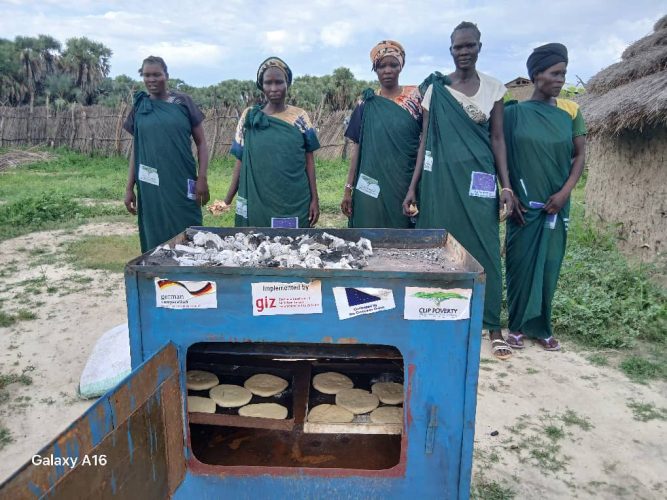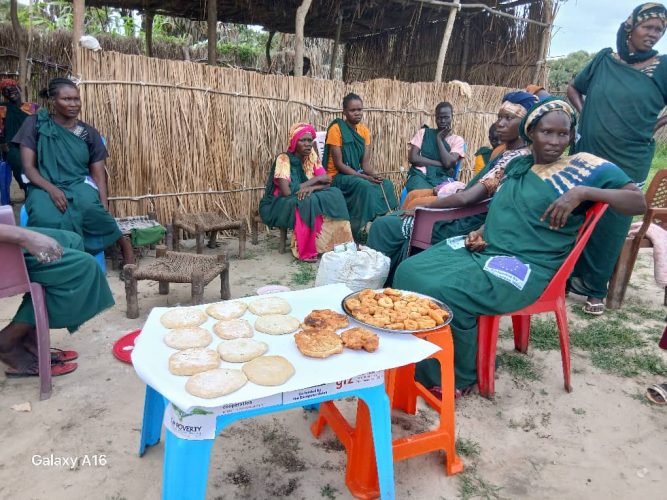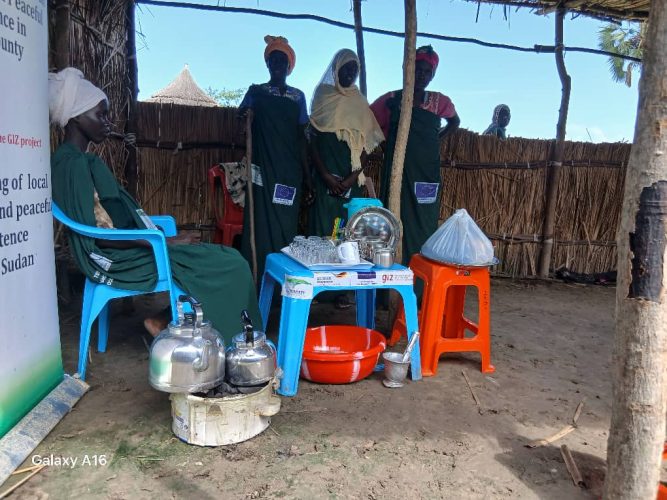Manyo County in Upper Nile State faces recurring floods, displacement from conflict, and chronic poverty. The region remains isolated, with poor infrastructure—no reliable roads, electricity, running water, hospitals, or quality schools. Most families depend on small-scale farming and traditional fishing for survival.
Women and youth are particularly affected, facing high unemployment, social exclusion, and limited access to productive tools or markets. These challenges have deepened poverty and strained community relations.

CLIP supported women’s groups to establish small-scale businesses such as bread-baking, mandazi production, and tea shop operations. The initiative intentionally included women with disabilities, ensuring they had equal access to training and resources.
In total, 50 women were trained including 10 women with disabilities among them, demonstrating CLIP’s commitment to inclusive economic empowerment and equal opportunity for all participants.
In total 50 women from Kwoch and Thorgwang Payams were trained in breadmaking, mandazi production, and tea shop management as part of our livelihood empowerment program in Manyo County, Upper Nile State. The training equipped participants with hands-on skills in product preparation, hygiene, pricing, customer service, and basic financial management.
The initiative aimed to help women generate sustainable income, strengthen household resilience, and promote peaceful coexistence through shared economic activities.

Many of the trained women are now running tea stalls, bakeries, and snack businesses within their communities, providing daily income and local employment opportunities. Beyond the financial impact, the project has helped boost women’s confidence, social participation, and recognition as key contributors to community development.
This initiative reflects CLIP’s commitment to inclusive economic empowerment, ensuring that all women — regardless of ability — can access opportunities to build better livelihoods and stronger, more peaceful communities.

Following the training, the women received start-up items to support the establishment of their small businesses. These resources enabled participants to put their new skills into immediate practice, helping them launch or strengthen income-generating activities within their communities.
The initiative aimed to help women generate sustainable income, strengthen household resilience, and promote peaceful coexistence through shared economic activities. To ensure inclusivity, the training intentionally included women with disabilities—five of whom successfully completed the sessions and have since started their own small enterprises.